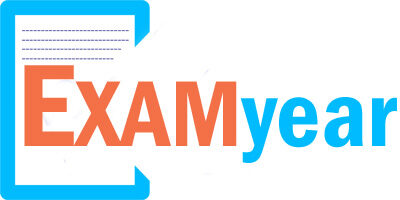Selected Questions on Accountancy
1. “Civil Accounts Officers” means an Accounts Officer subordinate to the __________.
(a) President of India
(b) Comptroller and Auditor General
(c) Prime Minister of India
(d) Finance Minister of India.
2. “Comptroller and Auditor General” means the ____________.
(a) Controller General of Accounts
(b) Controller of Accounts
(c) Director of Accounts
(d) Comptroller and Auditor General of India.
3. By virtue of the provisions of Article _________ of the Constitution, the Comptroller and Auditor General is empowered, with the approval of the President to prescribe the form of initial accounts from which the accounts rendered to the Indian Audit and Accounts Department are compiled or on which those accounts are based.
(a) 148
(b) 149
(c) 150
(d) 151
4. The Annual Accounts of each State Government and the Appropriation Accounts are submitted to the Governments of the respective State in pursuance of the provisions of paragraph ___________ of the Audit and Accounts Order, 1936.
(a) 9
(b) 10
(c) 11
(d) 11(4)
5. Following the principles in Article ___________, the pay and allowances of Govt. servants shall be classified in accounts as part of the scheme, activity or organizations (subhead) under a programme (minor head) below a function (major / sub-major head) to which the service of the Govt. servant closely relate.
(a) 29
(b) 39
(c) 42
(d) 45
6. The transit ____________ of Government servant proceeding to join an office whether on first appointment, or on transfer, either permanently or as a temporary measure, or on reversion from one department to another should in the absence of special orders to contrary be debited to the office to which he is proceeding.
(a) Pay and Dearness Allowance
(b) Pay and Special Compensatory Allowance
(c) Salaries
(d) Pay and Allowances.
7. Save as provided below, the travelling expenses of a Govt. servant shall, on whatever duty he may be employed be debited to the same head as his __________.
(a) Travelling Allowance
(b) General Provident Fund
(c) Insurance Fund
(d) Pay
8. Losses of public money, stores or other property of Government shall be accounted for in accordance with the rules in Chapter ________
(a) 1
(b) 4
(c) 6
(d) 10
9. Travel Expenses will cover all expenses on account of travel on duty including conveyance and fixed travelling allowances but excluding leave travel concession which falls under
(a) Contingency Fund
(b) Consolidated Fund
(c) Public Fund
(d) Salaries
10. Recoveries from private person or bodies (including local funds and Governments outside India) should as a general rule be treated as ________ and not as deduction from expenditure.
(a) Income
(b) Earnings
(c) Revenue
(d) Borrowings
11. A Treasury the cash business of which is conducted by the Bank is called –
(a) Local Treasury
(b) District Treasury
(c) Sub-Treasury
(d) Bank Treasury
12. A Treasury other than a bank treasury is called –
(a) Local Treasury
(b) Non-Bank Treasury
(c) District Treasury
(d) Sub-Treasury
13. Any transaction which cannot be allocated directly to any particular department or to any of the prescribed heads of classification should be entered in the accounts as –
(a) Classified Item
(b) Classified object
(c) Unclassified Item
(d) Classified Fund
14. The transactions of the Central Government in a State treasury should be accounted for in sets of books and registers entirely separate from those of the –
(a) Union Government
(b) Union Territory
(c) Central Government
(d) State Government.
15. Transactions relating to other States, whether taking place at a bank or a non-bank treasury should be classified in the “State” section of the treasury accounts under the suspense head –
(a) Inter-State Transfer Account — Government of ……….
(b) Inter-State Suspense Account — Government of ……..
(c) Inter-State Adjustment Account — Government of …….
(d) Inter-State Remittance Account — Government of ……..
16. Receipts and payments on account of the Reserve Bank originating in a State treasury or sub-treasury in the State Section of the treasury accounts should be credited or debited to the head –
(a) Accounts with the Reserve Bank
(b) Accounts with the Central Government
(c) Accounts with other States
(d) Accounts with Union Territory.
17. Save as otherwise provided in the Account Code, Vol. II or as may be authorised by the Accountant General in any special cases, transactions with, or on behalf of, departments which draw money from the treasury by cheques, without detail as receipts or payments, as the case may be, of the department concerned, should be entered in –
(a) Full
(b) Part and partial
(c) Lump
(d) Pro-rata basis.
18. A complete account of cash transactions and book transfers relating to the District treasury including those of the sub-treasuries within its jurisdiction should be kept in –
(a) Central Register
(b) Subsidiary Register
(c) Register of Adjustment by Transfer
(d) Cash Book Form T.A.1.
19. Remittances by Forest Officers should be entered in a register in –
(a) Form T.A. 12
(b) Form T.A. 13
(c) Form T.A. 20
(d) Form T.A. 22.
20. The account balance at the close of the month should agree with the actual cash balance in the treasury as reported in the Cash Balance Report of the –
(a) Day
(b) Week
(c) Fortnight
(d) Month
21. “Appropriation” means the assignment, to meet specified expenditure, of ________ included in a primary unit of appropriation.
(a) Receipts
(b) Revenues
(c) Funds
(d) Income
22. “_________ ” means a Head of Office, and also any other Gazetted Officer designated by a Department of the Central Government, a Head of Department or an Administrator, to draw bills and make payments on behalf of the Central Government.
(a) Disbursing Officer
(b) Designated Person
(c) Controlling Officer
(d) Subordinate Officer
23. “Public Account” means the Public Account of India referred to in Article 266 (_) of the Constitution.
(a) 2
(b) 3
(c) 4
(d) 5
24. All moneys received by or on behalf of Government either as dues of Government or for deposit, remittance or otherwise shall be brought into Government Account without delay, in accordance with such general or special rules as may be issued under Articles 150 and ________ of the Constitution.
(a) 283(1)
(b) 283(2)
(c) 283(3)
(d) 283(4)
25. Under Article __________ of the Constitution all moneys received by or deposited with any officer, employed in connection with the affairs of the Union in his capacity as such, other than Revenues or public money raised or received by Government, shall be paid into the Public Account.
(a) 150
(b) 162
(c) 166
(d) 284
26. Every officer incurring or authorizing expenditure from public moneys should be guided by high standards of financial______________.
(a) Rules
(b) Norms
(c) Propriety
(d) Properness.
27. Every officer is expected to exercise the same vigilance in respect of expenditure incurred from public moneys as a person or ordinary prudence would exercise in respect of expenditure of his own ________.
(a) Pocket
(b) Fund
(c) Source
(d) Money
28. A Controlling Officer shall see not only that the total expenditure is kept within the limits of the authorized grants of appropriation, but also that the funds are allotted to spending units are expended in the public interest and upon objects for which the money was _______.
(a) Sanctioned
(b) Released
(c) Provided
(d) Appropriated
29. No contract shall be made by a subordinate authority which has not been directed or authorized to do so by or under the orders of the President in terms of Article ___________ of the Constitution.
(a) 299
(b) 299 (1)
(c) 310
(d) 311
30. Any serious loss of immovable property, such as, buildings, communications, or other works, caused by fire, flood, cyclone earthquake or any other natural cause, shall be reported at once by the subordinate authority concerned to Government through the ________ channel.
(a) Routine
(b) Normal
(c) Usual
(d) Proper
31. Detailed rules and procedure regarding assessment, collection, allocation, remission and abandonment of revenue shall be laid down in the regulations of the department responsible for the collection of __________.
(a) Money
(b) Fund
(c) Revenue
(d) Tax
32. The financial powers of Government, which have not been delegated to a subordinate authority, shall vest in the _________.
(a) Home Ministry
(b) Railway Ministry
(c) Finance Ministry
(d) DONER Ministry.
33. Every case of loss of cash in treasuries whether in the course of remittance or out of treasury balance, small coin depot or currency chest, shall be reported to, and dealt with in accordance with the __________ of the Finance Ministry.
(a) Orders
(b) Rules
(c) Instructions
(d) Directions
34. All financial sanctions and orders issued by a competent authority shall be communicated to the Audit Officer and / or the Accounts Officer, as the case may be, in accordance with such ___________ as may be prescribed by general or special orders.
(a) Rules
(b) Instructions
(c) Directions
(d) Procedures
35. Copies of which of the following types of sanctions / orders should be endorsed to the Audit Officer.
(a) Sanctions relating to grant advances to Central Government employees
(b) Sanctions relating to appointment / promotion / transfer of Gazetted and non-Gazetted Officers
(c) All sanctions relating to creation / continuation / abolition of posts
(d) None of the above.
36. All sanctions to expenditure shall indicate the details of the provisions in the relevant grant or appropriation where from the expenditure is to be ______________.
(a) Incurred
(b) Provided
(c) Met
(d) Sanctioned
37. Retrospective effect shall not be given by competent authorities to sanctions relating to revision of pay or grant of concessions to Government servants, except in very special circumstances without the previous consent of the _________.
(a) President
(b) Prime Minister
(c) Home Minister
(d) Finance Ministry
38. A sanction for any fresh charge shall, unless it is specifically renewed, lapse if no payment in whole or in part has been made during a period of __________ from the date of issue of the sanction.
(a) 1 month
(b) 6 months
(c) 12 months
(d) 24 months
39. A sanction to an advance or a non-refundable part withdrawal from Provident Fund shall, unless it is specifically renewed, lapse on the expiry of a period of _________ months.
(a) 1 month
(b) 6 months
(c) 12 months
(d) 24 months
40. The Finance Ministry shall arrange to lay before both the Houses of Parliament, in accordance with the provisions of Article ________ of the Constitution, an Annual Financial Statement also known as the ‘Budget’ showing the estimated receipts and expenditure of the Central Government in respect of a financial year, before the commencement of that year.
(a) 112(1)
(b) 116
(c) 116
(d) 132
41. The estimates shall show separately the sums required to meet expenditure ‘Charged’ on the Consolidated Fund under Article 112 (3) of the Constitution and sums required to meet other expenditure for which a vote of the Lok Sabha is required under Article ______ of the Constitution.
(a) 112 (1)
(b) 113
(c) 113 (2)
(d) 114
42. Instructions for preparation of detailed estimates of receipts are contained in Appendix ______.
(a) 2
(b) 3
(c) 4
(d) 5
43. Instructions for preparation of detailed estimates of expenditure are contained in Appendix _________
(a) 2
(b) 3
(c) 4
(d) 5
44. Pending completion of the procedure prescribed in Article 113 of the Constitution for the passing of the Budget, the Finance Ministry may arrange to obtain, a “Vote on Account” to cover expenditure for one month or such longer period as may be necessary in accordance with the provisions of Article _______ of the Constitution.
(a) 116
(b) 116(1)
(c) 116(2)
(d) 150
45. All proposals for __________ to establishment, whether permanent or temporary, or for an increase in the emoluments of the existing posts, shall be scrutinized and submitted to the sanctioning authority in accordance with such instructions as may be prescribed in this behalf.
(a) Decrease
(b) Additions
(c) Abolition
(d) Extension
46. Appointments in a lower unit or cadre against an equal or greater number of vacancies left unfilled in the higher unit or cadre can be made under GFR ___________.
(a) 77
(b) 78
(c) 79
(d) 79(2)
47. A report of transfer of a Gazetted Government servant shall be signed in Form TR 1 or GFR 33 as required under Rule________.
(a) 78
(b) 79
(c) 79 (2)
(d) 80
48. Under GFR 79, every person newly appointed to a service or a post under Government shall at the time of the appointment ______ the date of birth by Christian era.
(a) State
(b) Give
(c) Declare
(d) Notify
49. If a Government servant is unable to state his exact date of birth but can state the year and month of birth, the _________ or the 16th of the month, respectively, shall be treated as the date of his birth.
(a) 1st January
(b) 1st March
(c) 1st April
(d) 1st July
50. GFR 80 (2) lays down that when a Government servant is only able to state his approximate age, his date of birth shall be assumed to be the corresponding date after ________ the number of years representing his age from his date of appointment.
(a) Adding
(b) Stating
(c) Deducting
(d) Multiplying


